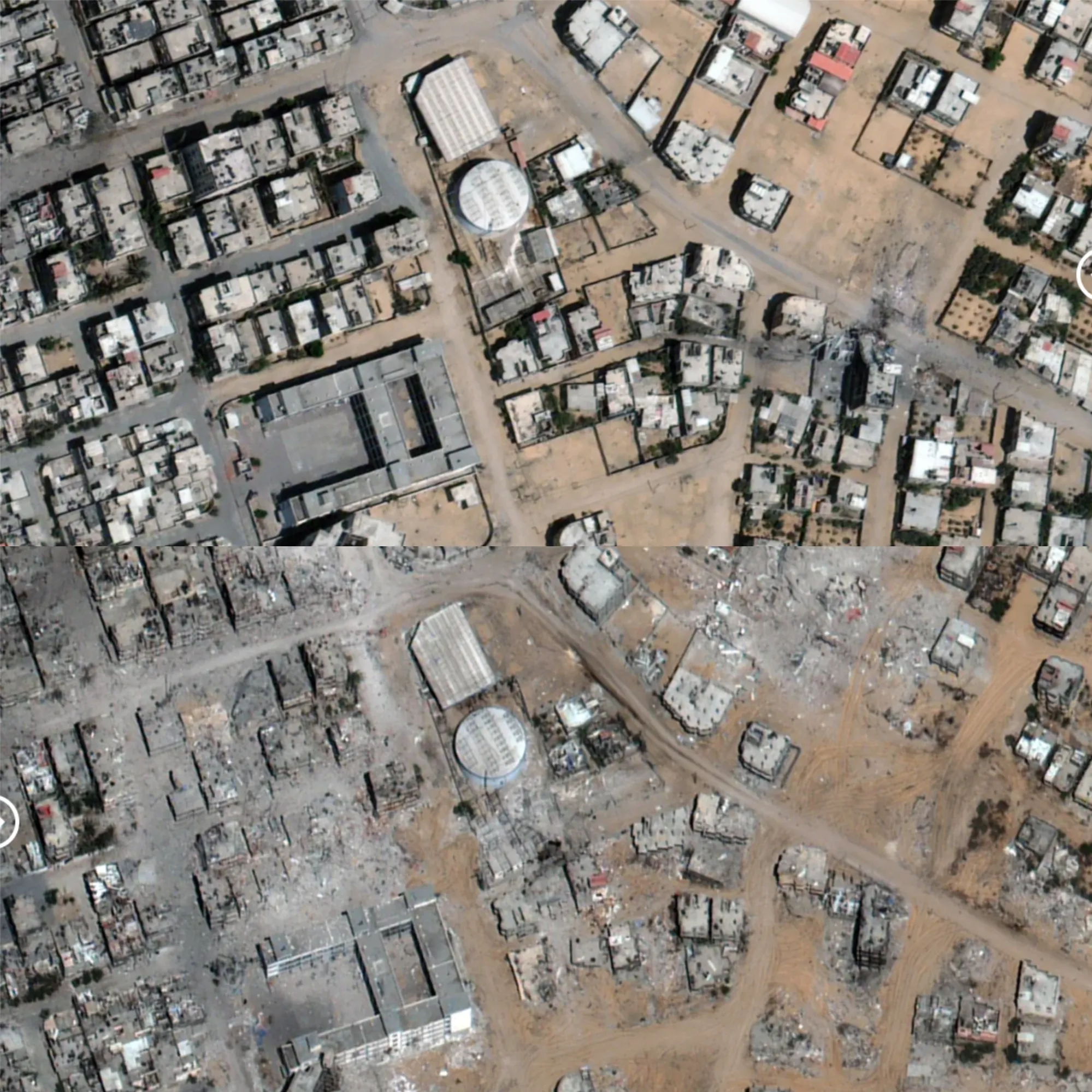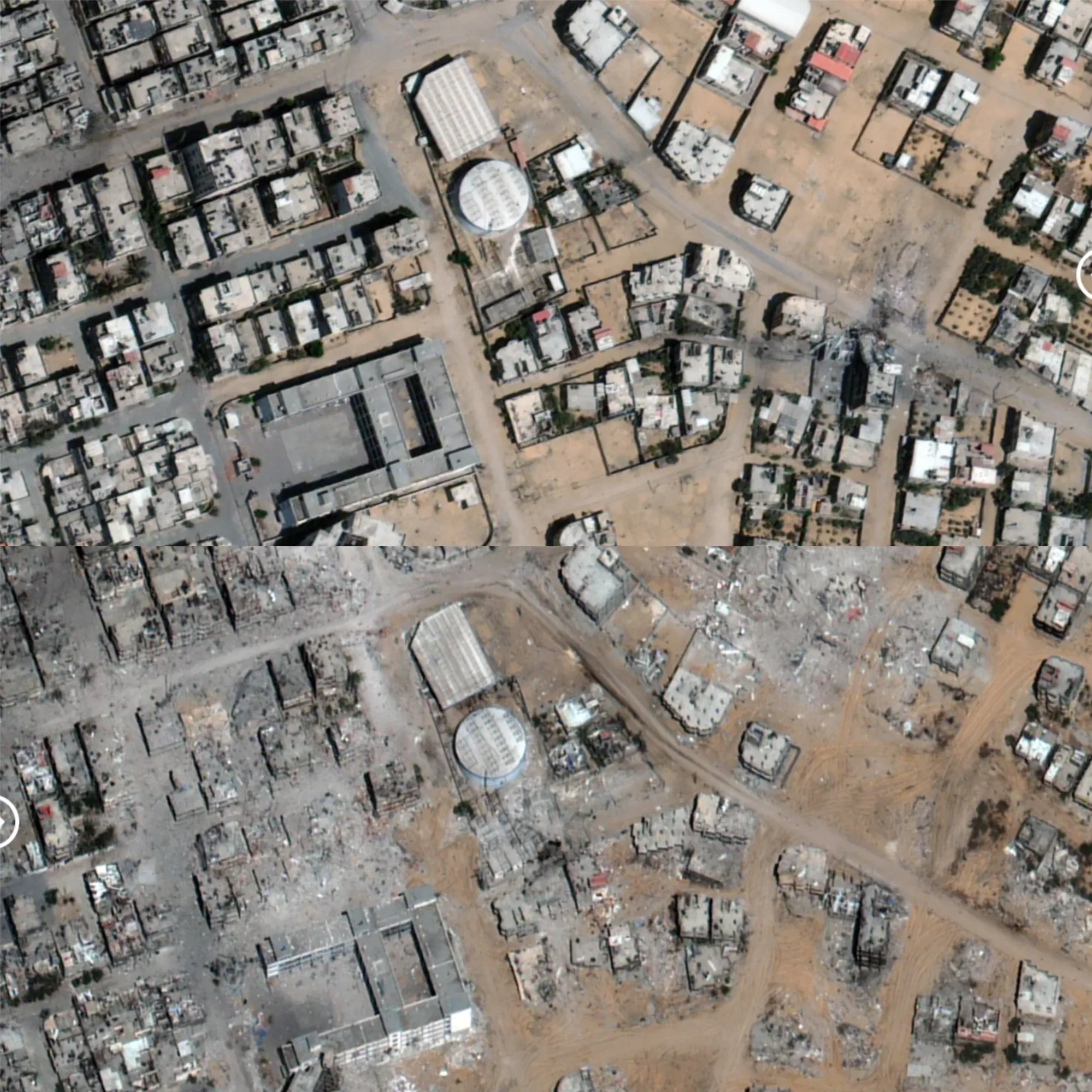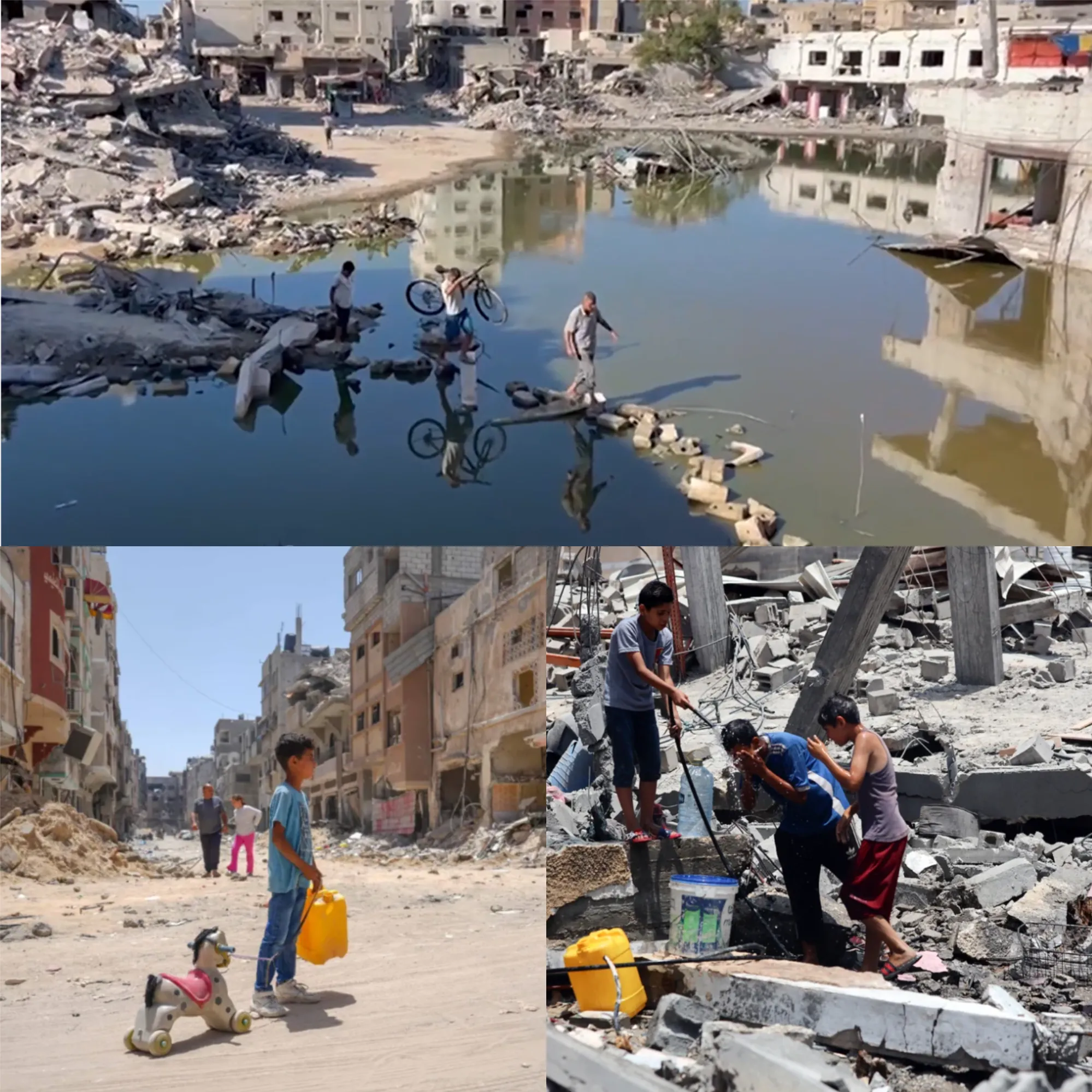
Children Suffer in Gaza as Water Crisis Worsens

In the midst of the ongoing conflict in Gaza, the destruction of critical water infrastructure has left children and families struggling to survive. Recent attacks, including the bombing of the Canada Water reservoir in Rafah, have drastically reduced access to clean water, exacerbating an already dire situation.
Critical Water Infrastructure Targeted
Two soldiers were reportedly seen wiring explosives to pumps at the Canada Water reservoir in southern Gaza. Moments later, the reservoir, which held 3 million liters of water and served 150,000 people, was destroyed in a massive explosion. The attack, captured in a video later deleted, highlights the severe impact on Gaza’s water supply, a lifeline for thousands of residents.
Worsening Water Crisis
The destruction of water facilities has had devastating consequences for the people of Gaza. The United Nations reported that around 70% of Gaza’s water and sanitation infrastructure has been damaged or destroyed. This has led to a severe shortage of clean water, with the average person in Gaza now receiving just 4.74 liters per day—far below the recommended minimum in emergencies. The lack of clean water has forced many to drink from puddles or contaminated sources, leading to the spread of waterborne diseases.

Humanitarian Concerns
The World Health Organization (WHO) has raised alarms about the rising number of infectious diseases in Gaza, including a polio outbreak that has already paralyzed a 10-month-old child. The ongoing conflict has hindered vaccination efforts, further endangering the health of vulnerable populations. The destruction of water infrastructure is not just a humanitarian crisis but also a violation of international humanitarian law, according to experts.
Desperate Conditions
The situation in Gaza’s tent camps is equally dire. Displaced families struggle to access potable water, sanitation facilities, and basic hygiene. The lack of clean water has led to an increase in gastrointestinal diseases, skin rashes, and other health issues, particularly among children and pregnant women. The summer heat has made the crisis even more unbearable, with many families unable to find enough water to stay hydrated.
Urgent Need for Aid
Despite claims from Israeli authorities that aid is being allowed into Gaza, relief workers on the ground report that the supplies are far from sufficient. Water scarcity, high costs, and the destruction of roads and infrastructure have made it nearly impossible for many families to access the water they need to survive.
The ongoing water crisis in Gaza underscores the urgent need for a ceasefire and increased humanitarian aid. Without immediate action, the suffering of Gaza’s civilian population will only continue to worsen, with devastating long-term consequences for the region.






